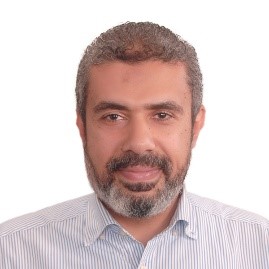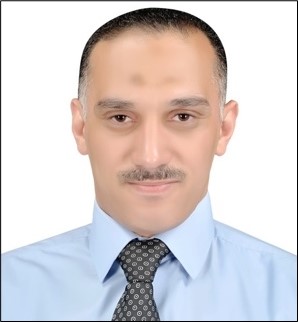Bassem Mokhtar: United Arab Emirates University

Dr. Bassem Mokhtar (Ph.D., SMIEEE) is an Assistant Professor of Computer Engineering, at the College of Information Technology, United Arab Emirates University, Al Ain, UAE. In 2014, He received his Ph.D. degree in Computer Engineering from Virginia Tech, USA. He received his B.Sc. and M.Sc. degrees in Electrical Engineering from Alexandria University, Egypt, in 2004 and 2008, respectively. He is a senior member of IEEE. He has experience in teaching undergraduate and graduate courses related to Computer and Electrical Engineering and Computer Science. His research interests include embedding intelligence in networking operations, autonomic resilient networking, network semantics reasoning, and machine learning applications in computer networks. He has been involved in a set of funded multidisciplinary research projects integrating advances in fields of machine learning-based applications in sensor networks, nanotechnology, and flexible electronics. Also, he participated as PI, Co-PI, and a researcher in a set of funded research projects that cross multi-disciplinary research fields including the Internet of Things, Internet of Vehicles, Software Defined Networking and Flexible Electronics. Additionally, He has been involved as a reviewer for various conferences and journals including IEEE Internet of Things Journal, IEEE Vehicular Technology Magazine, and Elsevier Journal of Network and Computer Applications.
Ali Ismail Awad: United Arab Emirates University

Prof. Ali Ismail Awad (Ph.D., SMIEEE, MACM) is currently an Associate Professor at the College of Information Technology, United Arab Emirates University (UAEU), Al Ain, United Arab Emirates. He has been coordinating the Master’s Program in Information Security at the same institution since 2022. He is an Honorary Associate Professor at the University of Nottingham, United Kingdom. He is also an Associate Professor with the Electrical Engineering Department, Faculty of Engineering, Al-Azhar University at Qena, Egypt. Dr. Awad was also an Associate Professor (Docent) with the Department of Computer Science, Electrical and Space Engineering, Luleå University of Technology (LTU), Luleå, Sweden, where he coordinated the Master’s Program in Information Security from 2017 to 2020. In 2021, he was promoted to a Recognized University Teacher rank at LTU for his pedagogical achievements. Dr. Awad was also a Visiting Researcher at the University of Plymouth, United Kingdom. His research interests include cybersecurity, network security, Internet of Things (IoT) security, and image analysis with biometrics and medical imaging applications. Dr. Awad has edited or co-edited several books and authored or co-authored several journal articles and conference papers in these areas. In 2021, 2022, and 2023, he was listed in the top 2% of influential scientists worldwide. He is an Editorial Board member of Future Generation Computer Systems, Computers & Security, Internet of Things; Engineering Cyber-Physical Human Systems, Health Information Science and Systems, and Security, Privacy and Authentication section by Frontiers. Dr. Awad is an IEEE Senior Member and an ACM Professional Member.
Mohammed M. Alani: Seneca Polytechnic and Toronto Metropolitan University

Prof. Mohammed M. Alani (Ph.D., SMIEEE, MACM) a senior member of the IEEE and ACM, holds a Ph.D. in Computer Engineering with a specialization in network security. He has worked as a professor and a cybersecurity expert in many countries around the world. His experience includes serving as VP of Academic Affairs in the United Arab Emirates, network and security consultancies in the Middle East, and Cybersecurity Program Manager in Toronto, Canada. He currently works as a Cybersecurity Professor at Seneca College, and a Research Fellow at Ryerson University, Toronto, Canada. He has authored 4 books in different areas of networking and cybersecurity, along with many research papers published in highly ranked journals and conferences. His current interests include applications of ML in cybersecurity and ML security.
